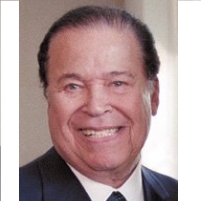Why Are There No Black Senators?
 Edward Brooke
Edward Brooke
With the departure of Barack Obama to the White House, the Senate will be without a single black senator, unless the Senate agrees to seat Roland Burris to replace Obama. This despite the fact that African Americans make up 12% of the U.S. population. In fact, there have been only three black senators in the last 128 years; Republican Edward Brooke from Massachusetts and Democrats Carol Moseley Braun and Barack Obama from Illinois. Even in the House of Representatives, African-Americans are underrepresented (39 of 435, or 9%). To explain this disparity, Nate Silver of FiveThirtyEight.com explores the demographics and finds that a Congressional district only gains a 10% chance of electing a black representative once its black population reaches 25%. While a bevy of Congressional districts fit that criterion, only 6 states do, and five of them are deep within the culturally conservative south. On top of that barrier, Silver argues that gerrymandered districts have narrowed the political vision of black candidates: “I suspect that a lot of the problem, however, is that as Congressional Districts have become more and more gerrymandered, leading to the creation of more and more majority-minority districts following the 1980 and 1990 censuses, the black political apparatus has become more and more 'ghettoized'. Black candidates have not had to develop a message that appeals to white voters, because most of them don’t have very many white voters in their districts (about half the nation's African-American population is limited to the 60 blackest Congressional Districts). Nor do they have very many conservative voters in their districts, and so they have not had to develop a message that appeals to conservatives, even though the black population itself is far more diverse in its political views than is generally acknowledged.”
- Top Stories
- Unusual News
- Where is the Money Going?
- Controversies
- U.S. and the World
- Appointments and Resignations
- Latest News
- Trump Orders ICE and Border Patrol to Kill More Protestors
- Trump Renames National Football League National Trump League
- Trump to Stop Deportations If…
- Trump Denounces World Series
- What If China Invaded the United States?






Comments